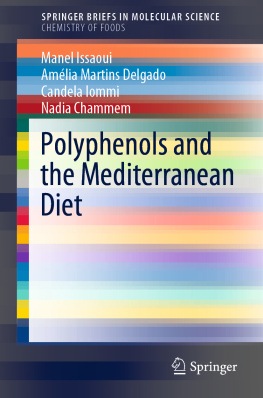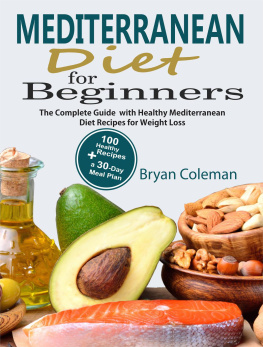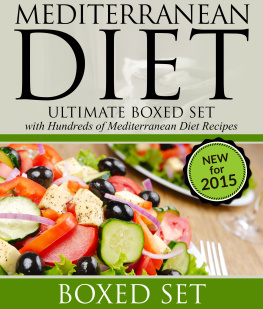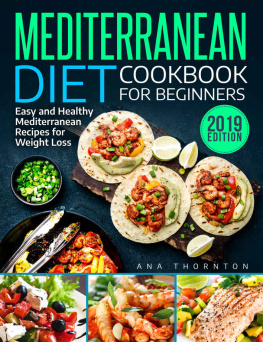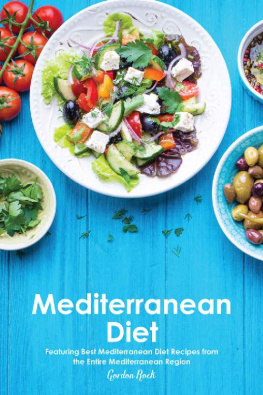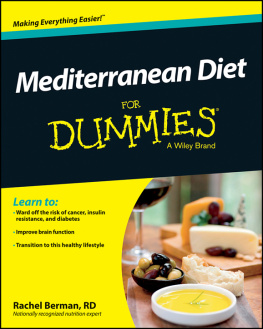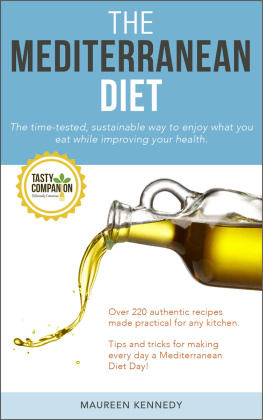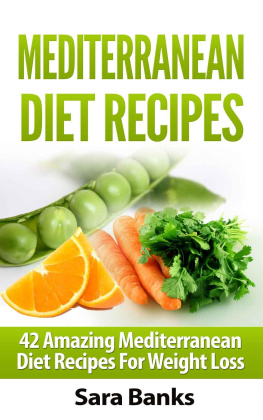Manel Issaoui - Polyphenols and the Mediterranean Diet
Here you can read online Manel Issaoui - Polyphenols and the Mediterranean Diet full text of the book (entire story) in english for free. Download pdf and epub, get meaning, cover and reviews about this ebook. year: 2020, publisher: Springer International Publishing, genre: Children. Description of the work, (preface) as well as reviews are available. Best literature library LitArk.com created for fans of good reading and offers a wide selection of genres:
Romance novel
Science fiction
Adventure
Detective
Science
History
Home and family
Prose
Art
Politics
Computer
Non-fiction
Religion
Business
Children
Humor
Choose a favorite category and find really read worthwhile books. Enjoy immersion in the world of imagination, feel the emotions of the characters or learn something new for yourself, make an fascinating discovery.
- Book:Polyphenols and the Mediterranean Diet
- Author:
- Publisher:Springer International Publishing
- Genre:
- Year:2020
- Rating:3 / 5
- Favourites:Add to favourites
- Your mark:
- 60
- 1
- 2
- 3
- 4
- 5
Polyphenols and the Mediterranean Diet: summary, description and annotation
We offer to read an annotation, description, summary or preface (depends on what the author of the book "Polyphenols and the Mediterranean Diet" wrote himself). If you haven't found the necessary information about the book — write in the comments, we will try to find it.
Polyphenols and the Mediterranean Diet — read online for free the complete book (whole text) full work
Below is the text of the book, divided by pages. System saving the place of the last page read, allows you to conveniently read the book "Polyphenols and the Mediterranean Diet" online for free, without having to search again every time where you left off. Put a bookmark, and you can go to the page where you finished reading at any time.
Font size:
Interval:
Bookmark:
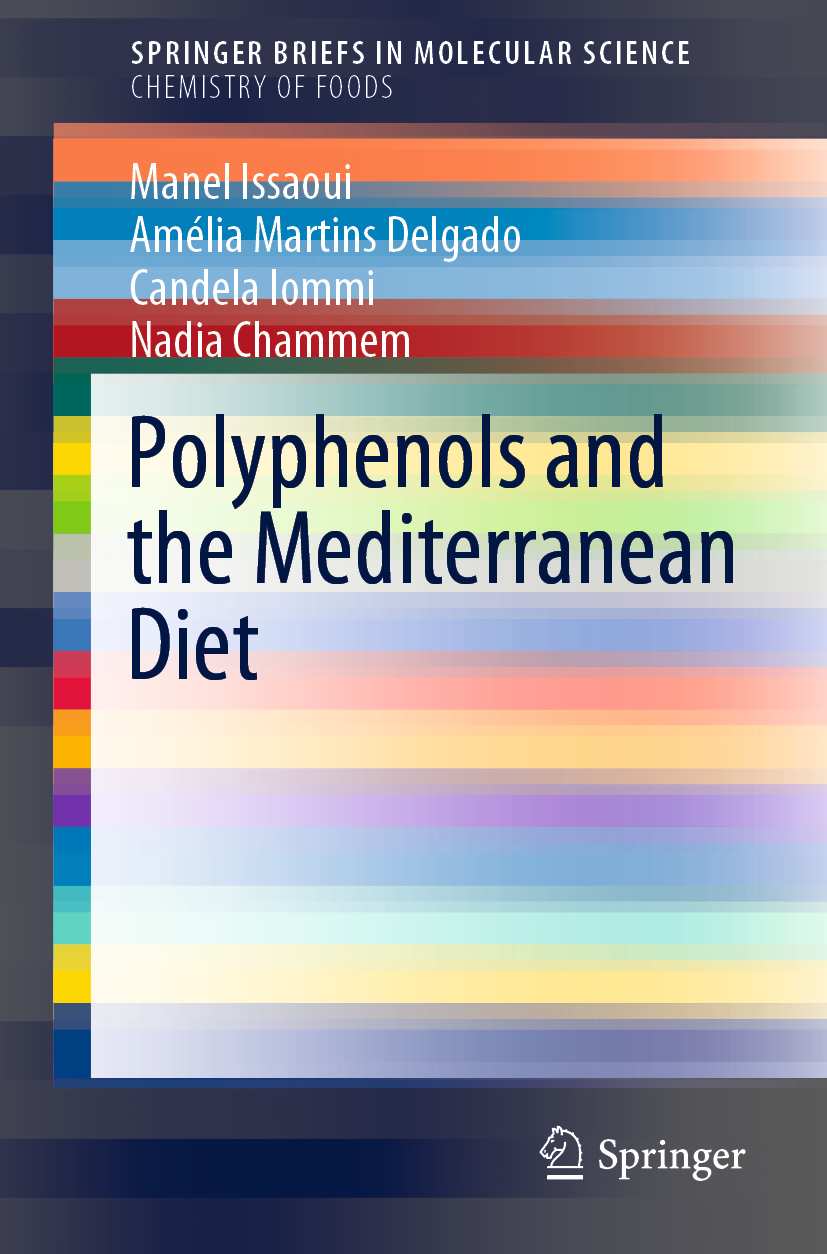
Compound classes in foodstheir chemistry and properties with respect to the foods (e.g. sugars, proteins, fats, minerals, )
Contaminants and additives in foodstheir chemistry and chemical transformations
Chemical analysis and monitoring of foods
Chemical transformations in foods, evolution and alterations of chemicals in foods, interactions between food and its packaging materials, chemical aspects of the food production processes
Chemistry and the food industryfrom safety protocols to modern food production
The treated subjects will particularly appeal to professionals and researchers concerned with food chemistry. Many volume topics address professionals and current problems in the food industry, but will also be interesting for readers generally concerned with the chemistry of foods. With the unique format and character of SpringerBriefs (50 to 125 pages), the volumes are compact and easily digestible. Briefs allow authors to present their ideas and readers to absorb them with minimal time investment. Briefs will be published as part of Springers eBook collection, with millions of users worldwide. In addition, Briefs will be available for individual print and electronic purchase. Briefs are characterized by fast, global electronic dissemination, standard publishing contracts, easy-to-use manuscript preparation and formatting guidelines, and expedited production schedules.
Both solicited and unsolicited manuscripts focusing on food chemistry are considered for publication in this series. Submitted manuscripts will be reviewed and decided by the series editor, Prof. Dr. Salvatore Parisi.
To submit a proposal or request further information, please contact Tanja Weyandt, Publishing Editor, via tanja.weyandt@springer.com or Prof. Dr. Salvatore Parisi, Book Series Editor, via drparisi@inwind.it or drsalparisi5@gmail.com
More information about this subseries at http://www.springer.com/series/11853

This Springer imprint is published by the registered company Springer Nature Switzerland AG
The registered company address is: Gewerbestrasse 11, 6330 Cham, Switzerland
The quality of food in terms of taste and nutritional value is primarily based on the composition. Plant-based foods contain phenols that may determine consumers acceptance of such foods. Besides their role in preventing the emergence of some diseases and in protecting our guts health, phenols play a cardinal role in shaping our perception of foods. In this specific ambit and during the last decade, many scientific researches have been revealing the health and nutritional benefits of polyphenols and have thus stimulated the creation and the development of a market niche linked to polyphenols. These molecules are mainly extracted from 12 vegetable matrices, including grape seeds, green tea, cocoa, olives (including fruit and oil) and coffee predominate. For these reasons, many of these food products are considered as functional foods. Interestingly, the Mediterranean Diet includes mainly foods of vegetable origin, many of which contain remarkable amounts and a wide variety of polyphenols. This chapter examines the consumers reaction to polyphenol-rich foods in terms of sensorial features, mainly flavours and colours. In addition, chemical properties and natural sources of phenolics have to be investigated.
Font size:
Interval:
Bookmark:
Similar books «Polyphenols and the Mediterranean Diet»
Look at similar books to Polyphenols and the Mediterranean Diet. We have selected literature similar in name and meaning in the hope of providing readers with more options to find new, interesting, not yet read works.
Discussion, reviews of the book Polyphenols and the Mediterranean Diet and just readers' own opinions. Leave your comments, write what you think about the work, its meaning or the main characters. Specify what exactly you liked and what you didn't like, and why you think so.

